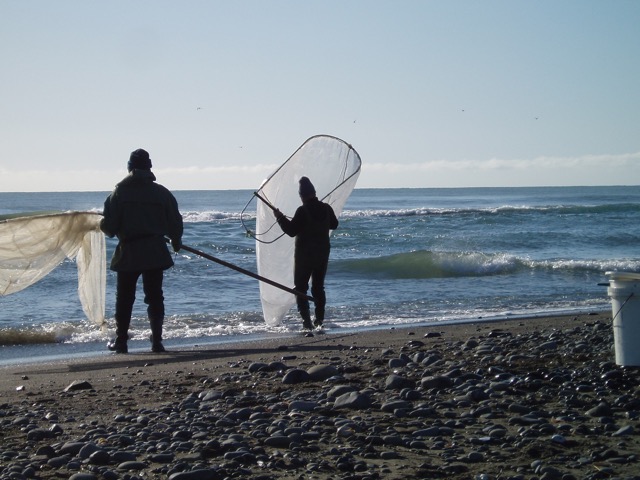The Council of Outdoor Recreation Assns of NZ (CORANZ) in submissions on the Department of Conservation’s whitebait management proposals, has called on the department to be
a strong advocate for habitat for the migratory fish.
“CORANZ is perplexed by the complete failure of the Department of Conservation (DoC) to be a strong advocate for habitat.
The approach of altering fishing regulations and its impact on recreational fishing was a mistaken view to increasing whitebait populations. CORANZ was not aware of sound evidence of whitebait decline as a result of fishing, except to some extent by pseudo-recreation fishers.
To the contrary there is strong evidence that erosion of habitat quality is a major factor with declining spawning habitat due to drainage of wetlands and stream bank degradation, declining water flows in rivers and streams due to irrigation demands, declining water quality due to contaminants such as nitrates from intensive dairying operations and declining freshwater ecosystem quality due to pine monocultures with heavy siltation of freshwater ecosystems.
Bogus Recreational
Relative to fishing pressure, CORANZ expressed concerns about bogus recreational fishing and associated black markets particularly relative to the West Coast of the South Island where groups or individuals can during heights of whitebait runs catch large quantities, fly the catch to cities where it is sold usually on a black market. Taxation issues were involved.
“Consideration should be given to setting a daily catch limit such as 3 kgs or 5 kgs. There will be some difficulty in policing this but it will send a strong educational message to the whitebait fishing public. And it would be relatively easy to target the ‘plunderers’ because of the quantities they can catch.”
No Licence!
CORANZ expressed strong opposition to any licensing of recreational whitebait fishers.
“In an ideal world, there should be no commercial value to whitebait. However there could be a limited number of commercial licences issued with quotas (non tradable) so the general public who do not fish, can purchase whitebait at licenced retail outlets.”
Improvements to recreational fishing would result from the removal of the commercial aspects currently being allowed for in the whitebait fishery.
“To reiterate, there are some horrific amounts being caught commercially in the South Island which certainly reflect poorly on the recreational whitebaiter through out New Zealand, who rarely would exceed getting more than a cup of whitebait for a days fishing.”
On the recreational rivers the whitebait currently have unimpeded travel most of the time, due to fishing being limited to daylight hours and a maximum of 1/3 of the waterway or 6 metres of screen and nets.
Degradation
The issue impacting whitebait is not access to habit for growing and breeding but rather the loss and degradation of those areas. It is suggested that the pressure from recreational fishing is significantly less than it was when it was used as a major food source by the first nation people.
As to adult fish populations being under pressure, we believe DOC should engage in the community to understand where the adult fish should be and encourage community effort to improve and “caretake” the habitat .

